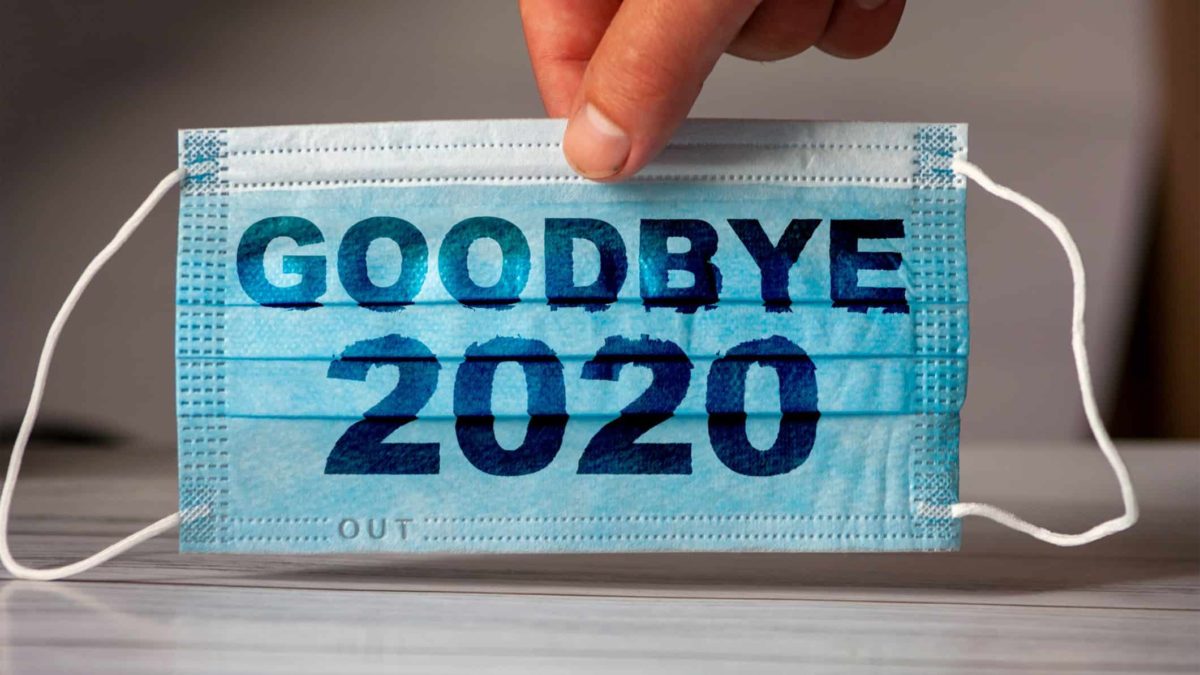A year that began with Australia ablaze from devastating bushfires perhaps set the pace for what would be a year of unprecedented times. Little did we know just how record-breaking the year would turn out to be.
The S&P/ASX 200 Index (ASX: XJO) inaugurated the year with a gain of 0.07% by the end of its first week of trading in 2020. At this time, coronavirus was only known as a 'cluster of pneumonia cases' with no deaths in Wuhan, as tweeted by the World Health Organisation.
Let's recap this crazy year before we start the next trip around the sun.
Bushfires
Across December and January, Australia experienced devastating bushfires that burnt an estimated 18.6 million hectares. Economists have pegged the cost at over $103 billion, making it economically the biggest natural disaster Australia has ever experienced to date.
ASX listed insurance shares in Insurance Australia Group Ltd (ASX: IAG), Suncorp Group Ltd (ASX: SUN), and QBE Insurance Group Ltd (ASX: QBE) all had a shocker of a year – down 38%, 24%, and 33%, respectively.
Insurance is a profession of probabilities to determine how much needs to be provisioned for claimable events. Unfortunately, insurers could have never anticipated everything (and the kitchen sink) being thrown at them in one year.
IAG turned to the market in November to raise $750 million to strengthen its balance sheet, as a precautionary provision while court proceedings continue over 'Business Interruption' claims due to COVID-19. IAG has earmarked the potential impact of business interruption claims for FY21 at $805 million.
Coronavirus
Without a doubt the hardest hit to individuals and businesses globally this year – coronavirus. Estimates of the global economic impact are in the multiple trillions.
Broadly, the ASX 200 experienced a swift crash from 7162.5 pts on 20 February, to its low of 4546 pts on 23 March – a 36.53% fall in 32 days.
The pause button was hit on travel around the world. Business for the now colloquially termed "BEACH" shares (Booking, Entertainment, Airlines, Cruises and Casinos, and Hotels/Resorts) was switched off like a light switch.
Virgin Australia went into voluntary administration, Qantas Airways (ASX: QAN) started flying to 'nowhere' (literally), and Flight Centre Travel Group Ltd (ASX: FLT) had to undertake drastic cost-cutting measures to preserve the business.
In contrast, some companies have benefitted from the environment created by the pandemic. Online shopping experienced a substantial lift in traffic as consumers were limited to their homes. Shares in Kogan.com Ltd (ASX: KGN) have risen by 150% over the last year – as the online shopping frenzy helped lift the company's gross sales for 2020 by 39.3% to $768.9 million.
Toilet paper madness
Toilet paper for a brief point in history became a precious commodity. The lockdowns and supply chain disruptions left shoppers anxious about running out of the previously little thought of essential.
The rampant panic buying resulted in the biggest rise in retail turnover recorded since the Australian Bureau of Statistics started tracking it.
This gave a short-term boost to the likes of Woolworths Group Ltd (ASX: WOW) and Coles Group Ltd (ASX: COL). However, many shoppers turned to online suppliers of toilet paper once the shelves were empty.
Although not listed, Australian founded 'Who Gives A Crap' sells sustainable branded toilet paper. Its previously niche market exploded, forcing it to close the doors to new customers when orders had the company doing a month of sales in a day. CEO and co-founder Simon Griffiths told the Australian Financial Review, "At our peak, we were selling 28 rolls of toilet paper every second."
For a good news story – the increased sales meant it could donate $5.9 million to charities around the world. This was 5 times larger than the previous year's donations.
Negative oil prices
Demand evaporated as airlines were grounded, cruise ships ported, and people were locked indoors. Meanwhile, production remained above consumption, and storage was running out fast.
It is a weird world when toilet paper is more in demand than oil. That was the case in April when Crude oil futures plummeted to negative $37.63 a barrel – it wasn't enough to give it away, producers were paying people to take it.
ASX energy producer shares Woodside Petroleum (ASX: WPL) and Oil Search Ltd (ASX: OSH) felt the commodity price pinch. Both company's reported half-year profits that had swung to large losses. Woodside shares are down 34% for the year, while Oil Search shares have dropped 47%.
Zoom entered the call
Zoom Video Communications Inc (NASDAQ: ZM) or more commonly, Zoom, has become almost synonymous with the events of 2020. As the world became more separated than ever, Zoom offered the conduit for connection.
Family members, schools, government officials, and businesses turned to the video conferencing app to continue to communicate with each other. Daily meeting participants skyrocketed, from 10 million in December 2019 to over 300 million by April this year.
The increase in users was accompanied by a meteoric increase in Zoom's share price, which grew 731% from the start of the year to its peak in October at US$559.
It is now a game of catch up for the tech giants in 2021 – Cisco is already making acquisitions in an attempt to bolster its own video conferencing offering.
Foolish takeaway
This recap just scraped the surface of what felt like a century of events in 1 year. As an optimist – one way to look at it is, if you were involved in the share market this year, you likely learned first-hand lessons that would normally take many years.
If 2020 proved anything, it's that our ingenuity and determination pulls us through even the most testing times. For instance, businesses persevered and adapted, some more successfully than others. 2021 will likely reveal which trends were temporary and which are here to stay.
Fingers crossed 2021's year in review has more Fleetwood Mac throwbacks and less toilet paper hoarding. Happy New Year!









